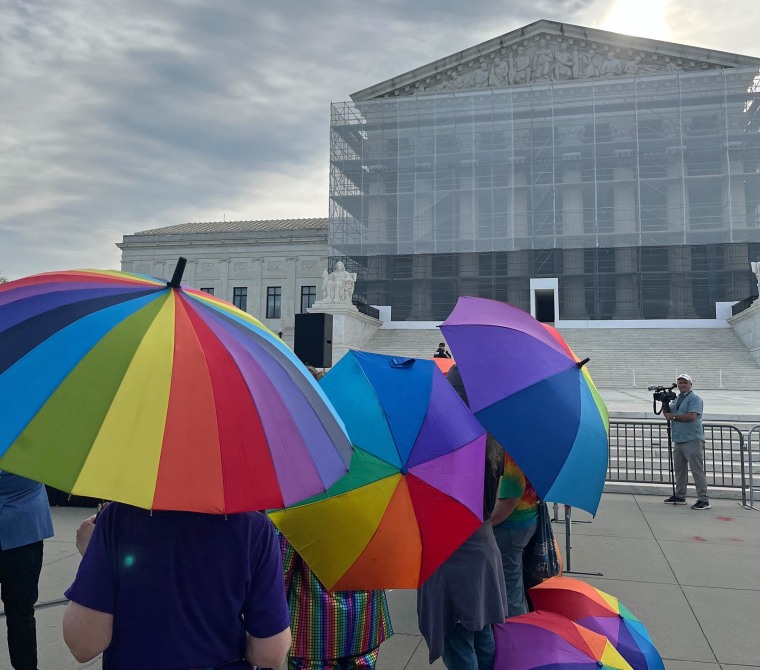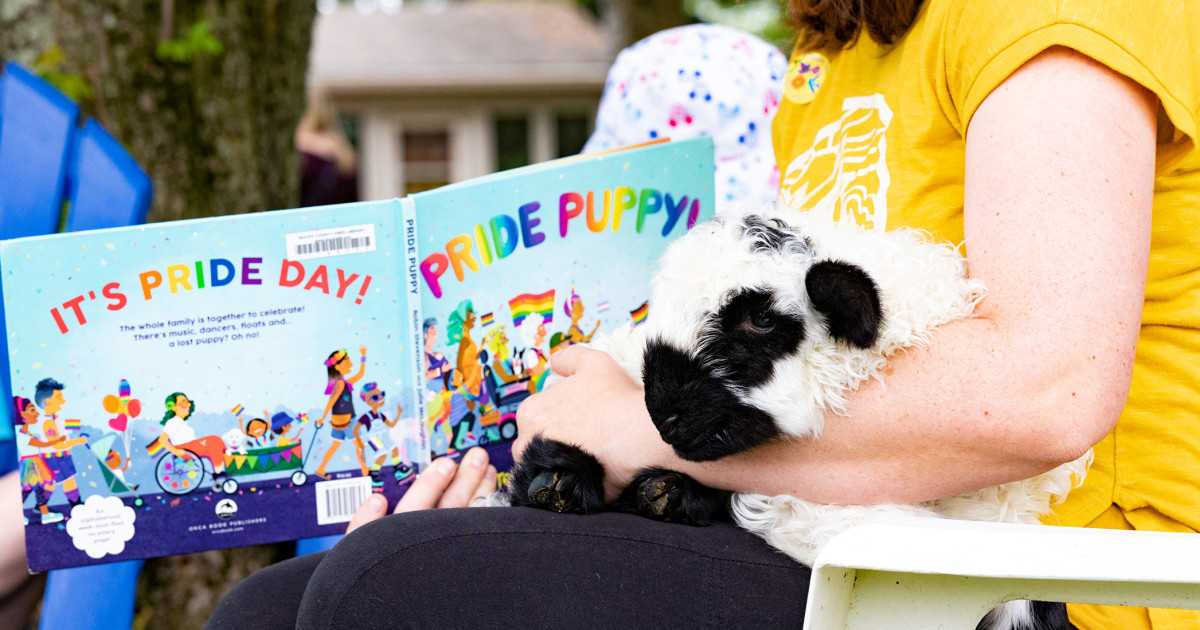Doobie Doo
Veteran
Supreme Court appears poised to rule for parents who objected to LGBTQ content in elementary schools
Some parents in Montgomery County, Md. say they have a religious right to ensure their children aren't exposed to LGBTQ books in the classroom.
- Savewith a NBCUniversal Profile
Create your free profile or log in to save this article
By Lawrence Hurley
WASHINGTON — The Supreme Court on Tuesday appeared likely to rule for parents in Maryland who objected on religious grounds to books made available in a school district's elementary schools that feature stories about gay and transgender characters.
Members of the 6-3 conservative majority, which often backs religious rights, seemed sympathetic during the lively two-and-a-half-hour oral argument toward the claims made by the parents that the Montgomery County Board of Education violated their religious rights by failing to provide an opt-out for their children.
Some justices indicated that the board's refusal to provide an opt-out might have been motivated by hostility toward religion. A ruling is due by the end of June.
At issue are books included in the English language arts curriculum in Montgomery County. The dispute arose in 2022 after the school board in the large and diverse jurisdiction just outside Washington, decided it wanted more storybooks reflecting LGBTQ stories to better reflect the people who live there.
Ahead of oral arguments, dueling rallies took place outside the court, with LGBTQ activists holding rainbow colored umbrellas and one holding a sign saying, "I will not stay silent."
A few yards away, a group supporting the challengers held signs that read "Let parents parent."

One book, "Uncle Bobby’s Wedding," features a gay character who is getting married. Another, called "Born Ready," is about a transgender child who wants to identify as a boy.
Some parents, including Muslims and Orthodox Christians, objected on religious grounds under the Constitution's First Amendment, saying their children should be able to opt out of any exposure to the content.
Conservative Justice Neil Gorsuch was one of several justices who raised comments made by a former member of the school board, Lynne Harris.
She had suggested in a media interview cited in court papers that a student who objected to the books was "parroting dogma" passed on by her parents and compared their complaints to those of white supremacists who opposed civil rights laws.
“Does that suggest a hostility toward religion?” Gorsuch asked, citing a 2018 ruling in which the court ruled for a Christian baker who refused to serve a gay couple on the grounds that a state civil rights commission had shown anti-religious animus.
Other conservative justices expressed disbelief that the school board found it too difficult to provide an opt-out.
“Why isn’t that feasible?” said Justice Samuel Alito.
“I’m not understanding why it’s not feasible,” added Justice Brett Kavanaugh.
Chief Justice John Roberts seemed skeptical of the school board's argument that the policy did not require the children to affirm or support the content of the books.
"Is that a realistic concept when you are talking about a five-year-old?" he asked.
Liberal justices were more sympathetic to the school board, with Justice Sonia Sotomayor questioning how much exposure to the contested contents children had.
"Haven't we made very clear that the mere exposure to things that you object to is not coercion?" she said.
She referenced Uncle Bobby's Wedding, wondering whether a religious objection could be based solely on the depiction of two men getting married.
"None of them are even kissing in any of these books. The most they are doing is holding hands," she added.
Alito, focusing on the same book, took a different view of the same content.
"The book has a clear message and a lot of people think it's a good message, and maybe it is a good message, but it's a message that a lot of people who hold on to traditional religious beliefs don't agree with," he said.
"I don't think anybody can read that and say 'well, this is just telling children that there are occasions when men marry other men'," he added.
The lead plaintiffs are Tamer Mahmoud and Enas Barakat — a Muslim couple who have a son in elementary school. Other plaintiffs are members of the Catholic and Ukrainian Orthodox churches.


